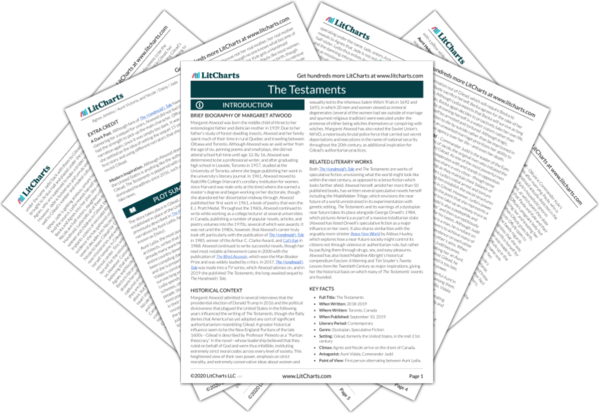In
The Handmaid’s Tale, Lydia occupied the role of an archetypal villain with no redeeming qualities. Her narration and characterization in this story offer Lydia’s character redemption, developing her from a one-dimensional monster to a complex and dynamic character, a human of “normal size” rather than an evil archetype.
